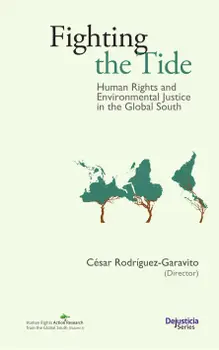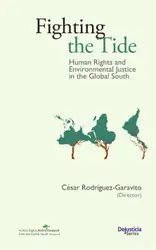This text forms part of a long-term project undertaken by Dejusticia as part of its international work. The project revolves around the Global Action-Research Workshop for Young Human Rights Advocates that Dejusticia organizes each year to foster connections among and train a new generation of action researchers.
The workshop helps participants develop action-research tools, understood as the combination of rigorous research and practical experience in social justice causes. For ten days, Dejusticia brings approximately fifteen participants and ten expert instructors to Colombia for a series of practical and interactive sessions on research, narrative writing, multimedia communication, and strategic reflection on the future of human rights. The aim is to strengthen participants' capacity to produce hybrid-style texts that are at once rigorous and appealing to wide audiences. Participants are selected on the basis of an article proposal, which is then discussed during the workshop and subsequently developed with the help of an expert mentor (one of the instructors) over ten months until a publishable version is achieved, such as the chapters that make up this volume.
The workshop also offers participants the opportunity to take advantage of new technologies and translate the results of their research and activism into diverse formats—from blogs, videos, and multimedia to social network communications and academic articles. Therefore, in addition to the annual volume comprising participants' texts and instructors' reflections, the workshop produces a blog in Spanish and English that features weekly entries by workshop alumni, written in the style described above. The title of the blog—Amphibious Accounts: Human Rights Stories from the Global South—owes itself to the fact that action research is "amphibious" in that its practitioners move seamlessly between different environments and worlds, from academic and political circles to local communities to media outlets to state entities. For those who are dedicated to the promotion of human rights, this often implies navigating these worlds in the global North and South alike.
Each year, the workshop is centered on a particular current issue. In 2014, the topic was the intersections between human rights and environmental justice that I outlined at the beginning of this introduction. In addition to providing coherence to the book and the group of participants, the selected topic determines the workshop site in Colombia—for the sessions are held not in a classroom or convention center but in the middle of the field, in the very communities and places that are witnessing the issue firsthand.

